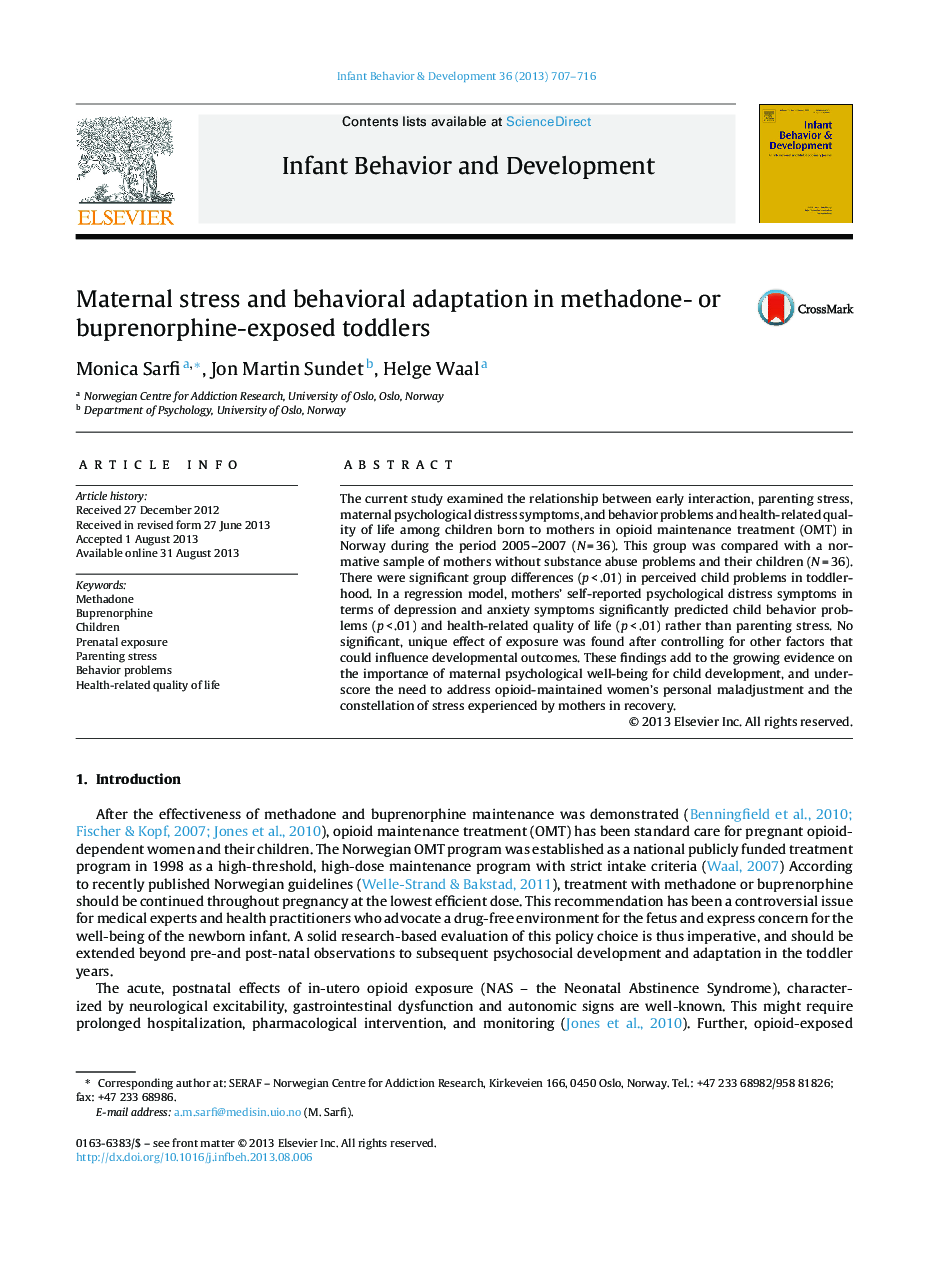| Article ID | Journal | Published Year | Pages | File Type |
|---|---|---|---|---|
| 10452724 | Infant Behavior and Development | 2013 | 10 Pages |
Abstract
The current study examined the relationship between early interaction, parenting stress, maternal psychological distress symptoms, and behavior problems and health-related quality of life among children born to mothers in opioid maintenance treatment (OMT) in Norway during the period 2005-2007 (N = 36). This group was compared with a normative sample of mothers without substance abuse problems and their children (N = 36). There were significant group differences (p < .01) in perceived child problems in toddlerhood. In a regression model, mothers' self-reported psychological distress symptoms in terms of depression and anxiety symptoms significantly predicted child behavior problems (p < .01) and health-related quality of life (p < .01) rather than parenting stress. No significant, unique effect of exposure was found after controlling for other factors that could influence developmental outcomes. These findings add to the growing evidence on the importance of maternal psychological well-being for child development, and underscore the need to address opioid-maintained women's personal maladjustment and the constellation of stress experienced by mothers in recovery.
Keywords
Related Topics
Life Sciences
Neuroscience
Behavioral Neuroscience
Authors
Monica Sarfi, Jon Martin Sundet, Helge Waal,
